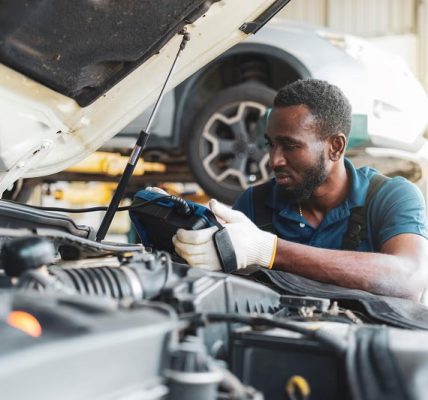How to Protect Your Investment and Ensure Quality Service
Diesel trucks are built for power and longevity, but like any machine, they need expert care to stay at peak performance. Whether it’s a routine service or a major repair, choosing the right diesel repair shop is essential. But it’s not just about who’s closest or cheapest—it’s about who’s qualified, trustworthy, and transparent.
Before handing over your keys, asking the right questions can make all the difference. Here are the top questions to ask your diesel repair shop to ensure you’re leaving your vehicle in capable hands.
1. Do You Specialize in Diesel Repairs?
This might seem obvious, but it’s an important first step. Diesel engines require different tools, knowledge, and diagnostic equipment compared to gas-powered vehicles. Not every general repair shop is equipped—or experienced—enough to properly diagnose and service diesel issues.
Ask specifically whether they have technicians trained in diesel engine technology and if they work on vehicles like yours regularly. A shop that specializes in diesel will have deeper insight into common problems, brand-specific quirks, and the best long-term solutions.
2. Are Your Technicians Certified?
The experience of the mechanic handling your truck matters just as much as the shop’s reputation. Certifications like ASE (Automotive Service Excellence) or manufacturer-specific training demonstrate that a technician has undergone extensive education and testing.
When it comes to something as valuable as your diesel truck, you’ll want to know the diesel truck mechanic working on it has proven their expertise and keeps up with evolving engine technology.
3. What Diagnostic Tools Do You Use?
Today’s diesel engines are complex, and most issues require high-tech diagnostic tools to properly evaluate. A professional diesel repair shop should use modern scanning tools that can accurately read trouble codes, assess performance data, and pinpoint issues without guesswork.
If the shop relies heavily on manual checks or “what we’ve seen before” logic alone, consider that a red flag. Proper diagnostics save time, money, and unnecessary parts replacements.
4. Do You Provide a Detailed Estimate Before Starting Work?
Transparency is key when it comes to pricing. A trustworthy diesel repair shop will provide a detailed, itemized estimate before doing any work. This includes a breakdown of parts, labor, and diagnostic fees—along with a clear explanation of what’s urgent and what can wait.
You should never feel pressured or blindsided by unexpected charges after the fact. If a shop hesitates to provide a written estimate or brushes off questions about pricing, it’s time to look elsewhere.
5. What Is Your Warranty on Parts and Labor?
A solid warranty is a sign that the shop stands behind its work. Ask what kind of warranty they offer on both parts and labor. Are the parts OEM (original equipment manufacturer) or aftermarket? How long is the coverage period? What does it include—and exclude?
A reputable shop will have no problem sharing this information and explaining the warranty terms in plain language. This not only protects your wallet in case something goes wrong but also speaks to the shop’s confidence in the quality of their repairs.
6. Do You Keep Service Records for My Vehicle?
Keeping accurate service records is essential for resale value, future maintenance, and warranty claims. Ask whether the shop maintains detailed records of all services performed on your truck—and whether you’ll receive copies for your own files.
Shops that offer digital records or customer portals make it even easier to keep tabs on your truck’s health over time, ensuring nothing falls through the cracks.
7. How Do You Handle Communication During the Repair Process?
Clear and timely communication can turn a stressful repair into a seamless experience. Ask how and when they’ll contact you during the process—will they call before performing additional work? Do they offer text or email updates? Can you speak directly to the technician?
Understanding how the shop handles customer communication ensures you’re never left in the dark, especially if the job takes longer or turns up unexpected issues.
Your diesel truck is more than just a vehicle—it’s an investment. Whether you rely on it for work, recreation, or both, proper care starts with choosing a repair shop that earns your trust. By asking the right questions upfront, you not only protect your vehicle but also build a relationship with a shop that can serve you for years to come.
Don’t settle for vague answers or rushed explanations. A qualified diesel mechanic will appreciate your interest, respect your concerns, and provide clear, confident responses. After all, an informed truck owner is a shop’s best customer—and your diesel deserves nothing less.










